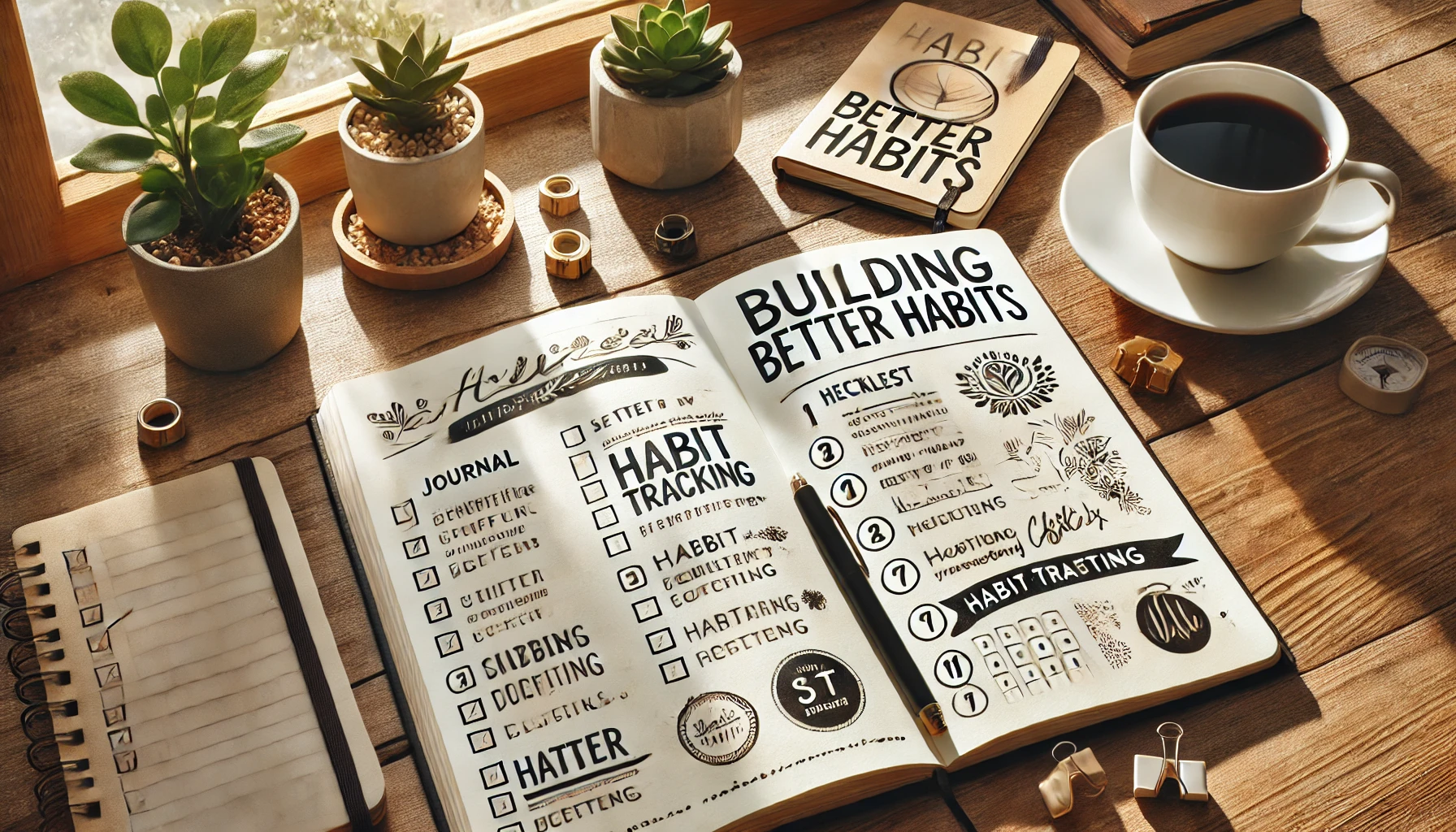Building better habits is essential for achieving long-term success in any area of life, whether it’s improving your health, advancing your career, or enhancing personal relationships. Habits shape your daily actions, and over time, these small, consistent behaviors can lead to significant outcomes.
Here’s how to build better habits that stick and set you on a path to lasting success.
Understand the Science of Habits
Habits are formed through repetition and become automatic over time. They are built around a cycle called the habit loop, which consists of three parts:
- Cue: A trigger that initiates the habit.
- Routine: The behavior itself.
- Reward: The benefit you gain from the habit, which reinforces its repetition.
By understanding this loop, you can design habits that align with your goals and break those that don’t.
Start Small
One of the biggest mistakes people make when trying to build new habits is starting too big. Focus on small, manageable changes that are easy to incorporate into your daily life.
Examples:
- Instead of committing to an hour-long workout, start with 5–10 minutes of exercise.
- Drink one extra glass of water a day to build a hydration habit.
- Spend five minutes tidying up your workspace daily.
Small successes create momentum and make it easier to expand your habits over time.
Be Consistent
Consistency is key to turning actions into habits. Try to perform the new habit at the same time and in the same context each day.
Tips for staying consistent:
- Pair your habit with an existing routine (e.g., meditate after brushing your teeth).
- Use reminders, such as alarms or sticky notes, to stay on track.
- Track your progress to maintain accountability and motivation.
Focus on Identity, Not Just Outcomes
Shift your mindset from “What do I want to achieve?” to “Who do I want to become?” By focusing on identity, you align your habits with your long-term values and goals.
Example:
- Instead of saying, “I want to lose weight,” say, “I am a healthy person who makes nutritious choices.”
- Instead of, “I want to read more,” say, “I am a lifelong learner.”
This shift creates a stronger foundation for lasting change.
Make It Easy
The easier a habit is to perform, the more likely you are to stick with it. Remove barriers and simplify the process as much as possible.
How to make habits easier:
- Lay out your workout clothes the night before to encourage morning exercise.
- Keep healthy snacks visible and accessible in your kitchen.
- Use automation tools like reminders or subscriptions for recurring tasks.
Leverage the Power of Rewards
Rewards motivate you to repeat a habit. They can be intrinsic (feeling good about your progress) or extrinsic (treating yourself).
Examples of rewards:
- Enjoying a relaxing bath after a productive day.
- Watching your favorite show after completing a workout.
- Celebrating milestones, such as 30 days of consistent habit practice.
Make sure your rewards align with your goals to avoid undermining your progress.
Be Patient and Kind to Yourself
Building better habits takes time and effort. Expect setbacks and don’t be discouraged if you miss a day or struggle initially.
Tips for staying motivated:
- Focus on progress, not perfection.
- Treat setbacks as learning opportunities.
- Remind yourself of your long-term goals and why the habit matters.
Break Bad Habits
Just as you can build good habits, you can also break bad ones. Identify the cues and rewards driving the undesired behavior and replace them with healthier alternatives.
Steps to break a bad habit:
- Recognize the triggers that lead to the habit.
- Substitute the routine with a positive behavior.
- Focus on the benefits of the change to reinforce it.
Surround Yourself with Support
Your environment and social circle play a significant role in habit formation. Surround yourself with people and settings that support your goals.
How to create a supportive environment:
- Join a group or community with similar goals (e.g., a running club or book club).
- Share your goals with friends or family who can encourage you.
- Remove temptations or distractions that hinder progress.
Final Thoughts
Building better habits is a journey, not a destination. By starting small, staying consistent, and focusing on identity and rewards, you can create sustainable changes that lead to long-term success.
Remember, the key to lasting habits lies in patience, persistence, and self-compassion. Take it one step at a time, and watch as small actions add up to significant results.
